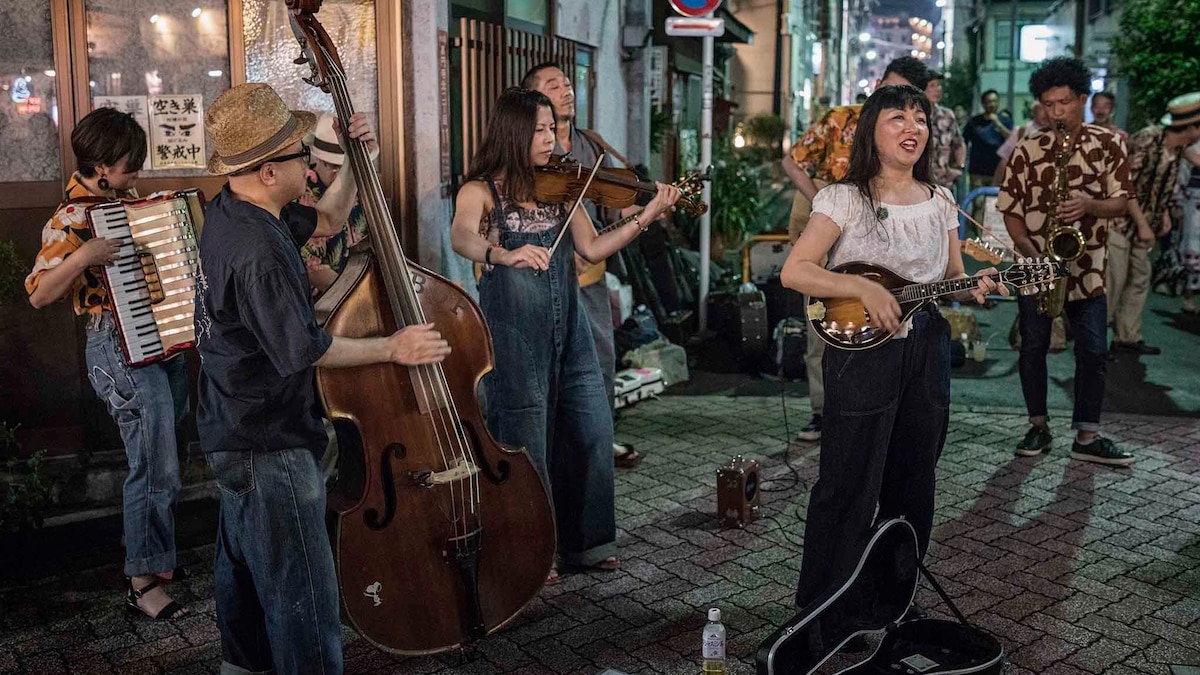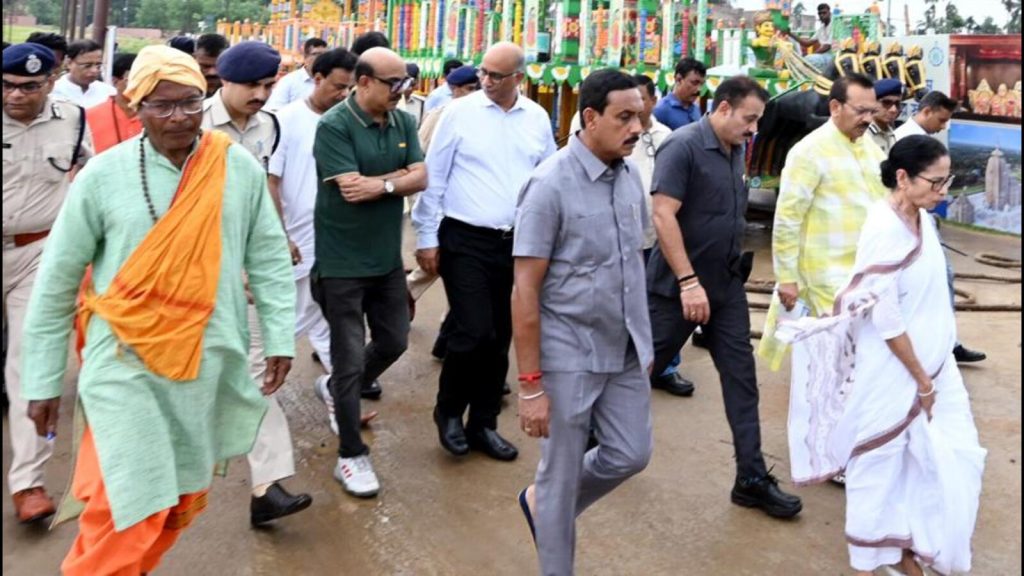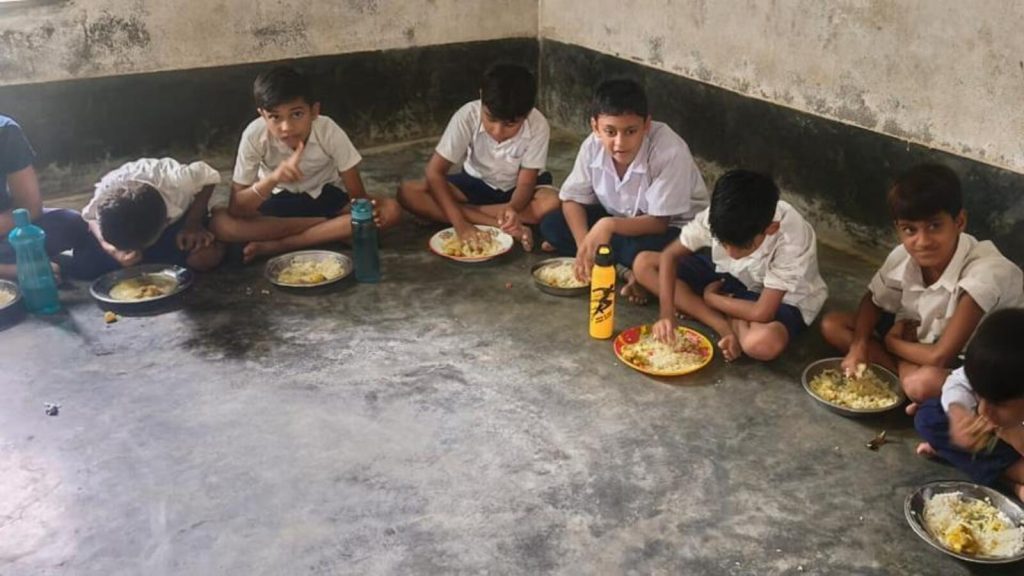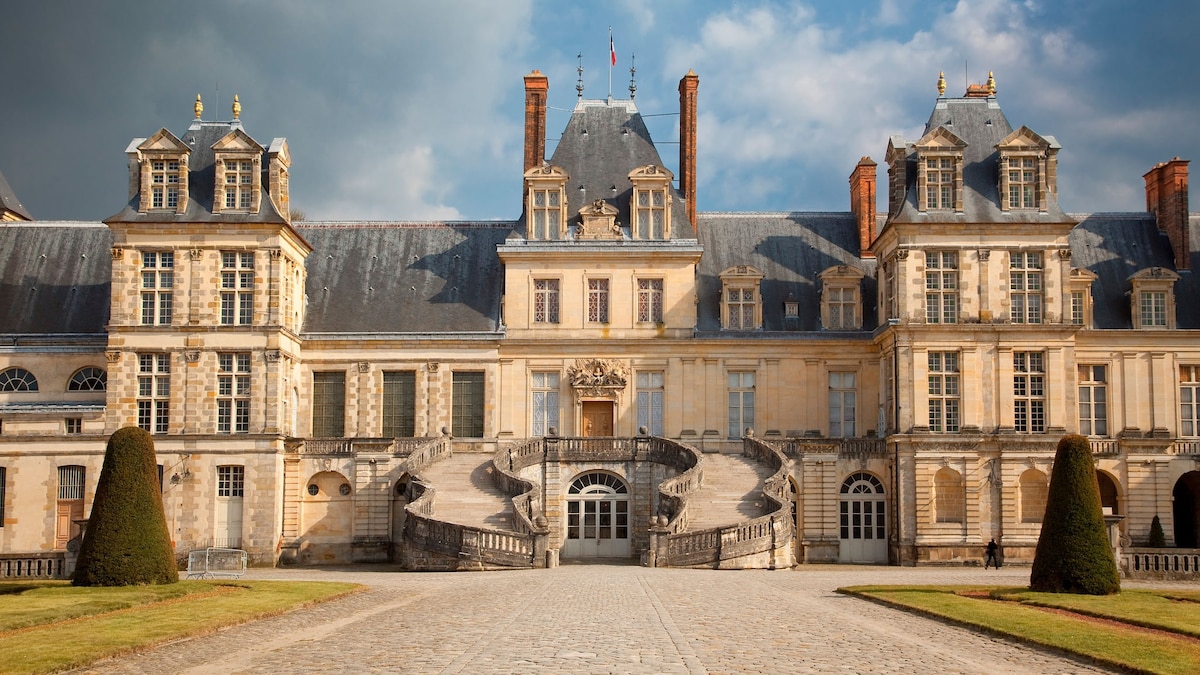Now Reading: A music lover’s guide to Tokyo
-
01
A music lover’s guide to Tokyo
A music lover’s guide to Tokyo

If you’re a record collector, a guitar nerd, a jazz head, a garage rocker, or a karaoke crooner, Tokyo is possibly the best place on the planet for music lovers. Before planning a trip to Japan‘s capital city, here’s what you need to know about its diverse music scene for all types of musicophiles.
Shop for your favorites at a record store
Ask anyone who has visited Tokyo about record shopping and they will all mention Disk Union. The behemoth music retailer has been around since 1967 and has multiple stores across the city. In Shinjuku alone, we’re talking four separate buildings within a three-block radius, containing various levels that cover 18 different genres. Music lovers will need a map—and fortunately, you can find one online or at the front of any of their stores. Tokyo is also home to several independent record stores. Shimokitazawa is a neighborhood revered by crate-diggers, and you’ll find plenty to peruse at Pianola Records, Jet Set, Flash Disc Ranch (featured in the Wim Wenders’ film Perfect Days), and City Country City—a bar, café, record store, and small venue owned by Keiichi Sokabe, the frontman of revered Japanese band Sunny Day Service.
(Everything you need to know for the perfect Tokyo trip.)
Perform onstage at a live music venue
In Tokyo, music venues are called “live houses.” Tthe best of them reside in neighborhoods such as Koenji (SUB Store and Sound Studio DOM), Asagaya (Club Heavy Sick and Forestlimit), Shinjuku (Space and Shinjuku Loft), and Shimokitazawa (Shelter and Live Haus).
At Heaven’s Door in Nishi-Ogikubo, I was the only non-Japanese patron. Within 30 minutes, I was onstage behind a mic with a guitar around my neck, performing The Rolling Stones’ “The Last Time” and The Who’s “The Kids Are Alright,” accompanied by regulars on lead guitar, bass, and drums. I received high-fives from everyone in the room and swapped Facebook and Instagram details by the end of the night.
(Some of the nicest gardens in Tokyo are hidden behind hotels.)
Attend a popular music festival
Music fans can plan their vacations around Japan’s music festival calendar. One of the biggest and most famous festivals, Summer Sonic was established 25 years ago and is held over two days every August in Tokyo and Osaka. Recording artists featured at previous festivals have included Red Hot Chili Peppers, The Strokes, Blur, Kendrick Lamar, and popular Japanese bands such as Babymetal. Electronic music fans flock to Ultra Japan, which is held on a man-made island in Tokyo Bay and has hosted all the biggest dancefloor-fillers, including David Guetta, Tiesto, and deadmau5.
If you’re a garage rock music fan, you should plan a trip to attend Back from the Grave’s annual Halloween Ball. This is like a United Nations summit of the best acts in this wild, loud, and sweaty genre. If jazz is more your thing, then Asagaya Jazz Streets transforms the bars, venues, parks, and streets of Tokyo’s Asagaya neighborhood into jazz nirvana at the end of October. All outside events are free of charge.
(Don’t leave Tokyo without these must-do experiences.)
Relax at a listening bar
Jazz kissatens are cafés or bars devoted to listening to vinyl records. In a city as fast paced as Tokyo, it’s a contrast to step into one of these places, slow down, and immerse yourself in music, whether it’s classical at Lion Café in Shibuya or soul, disco, and R&B at Little Soul Café in Shimokitazawa. Tokyo has approximately 100 listening bars—some have a no-talking policy during the day and become more convivial at night. In the heart of Shinjuku, Dug was opened in 1961 by photographer Hozumi Nakadaira, whose pictures of jazz greats, including Miles Davis and John Coltrane, grace the walls. This listening bar was also featured in Haruki Murakami’s Norwegian Wood, the best-selling novel published in 1987.
Visit a guitar lover’s oasis in Tokyo
Just 10 minutes from Shinjuku Station on a rapid express train, you’ll find yourself standing on Meidai Dori also known as Guitar Street. The strip is lined with more than 50 musical instrument stores. Meanwhile, a temple to the guitar opened in 2023 in a building near Harajuku’s popular Takeshita Street. Fender Flagship Tokyo is the renowned U.S. company’s very first flagship. Every Fender instrument and amplifier is artfully displayed on four floors, and you can go in, point at anything you like, plug it in, and play. The store also features a custom shop (named “The Dream Factory”) for made-to-order instruments, a café (from California company Verve Roasters), and an apparel store.
(8 family-friendly things to do in Tokyo.)

Street musicians perform in Tokyo’s Harajuku neighborhood.
Photograph by Igor Kisselev, Alamy Stock Photo

Visitors at Cozy Café in Tokyo can peruse its vinyl collection and listen to music.
Photograph by Izumi Oki, Alamy Stock Photo
Sing at these popular karaoke spots
Karaoke is a popular pastime in Japan—after all, it started here. Unlike karaoke in the West, which is generally found in a bar or pub, most Japanese karaoke joints are hosted in private rooms for a half-hour, allowing amateur crooners an opportunity to sing along with friends, or even solo, also known as hitokara in Japanese. One of the most popular karaoke chains is Karaoke San, and their outlet in Shibuya is featured in Lost in Translation, where Scarlett Johansson sang a sassy version of The Pretenders’ “Brass in Pocket” and Bill Murray did a melancholic, jet-lagged take on Roxy Music’s “More Than This.”
(How to eat your way through Tokyo.)
Enjoy the nostalgia of The Beatles
The Beatles’s Japanese tour in 1966 is still spoken about in reverential tones. Fans can relive the nostalgia and phenomena by visiting vintage clothing shops to easily find Beatles t-shirts, and many record stores in Tokyo have an impressive section devoted to them. Be-In Records in Koenji is one of those must-visit places. This record store has every Beatles album, including versions from different countries, and also has full bins with the solo work of John, Paul, George, and Ringo.
To witness the pinnacle of Beatles fandom, music lovers can book a ticket to Abbey Road, a club in Roppongi where The Parrots, a Japanese band, do note-perfect renditions of the legendary band’s entire catalogue. The Parrots play four sets a night, five nights a week, and provide a joyous evening of nostalgia that’s a must-see for any fan of “The Fab Four.”
(10 of the best hotels in Tokyo, from charming ryokans to Japanese onsen retreats.)
Barry Divola is a journalist, author and musician from Australia, and his latest book is the music-infused road novel Driving Stevie Fracasso – follow him on Facebook.






















